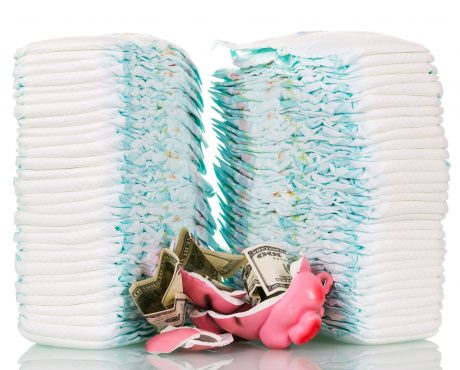P&G Stock Up 42% in 12 Months, With More Upside Coming
Last year, when Wall Street had given up on Procter & Gamble Co (NYSE:PG) following a series of poor financial results, I vowed to stand behind the consumer staples giant.
I’m glad I did.
Selling after a few bad quarters rarely pays off. And while not every struggling company rebounds—I’ve certainly gotten burned by holding onto poorly managed businesses for too long—the rebound in Procter & Gamble underscores why I believe in a buy-and-hold investment strategy.
PG stock has come roaring back. Since bottoming out at $72.60 last May, the stock has delivered a total return, including dividends, of 49%. Several investment firms have upgraded the stock, raising their target prices for the upcoming year. Yet despite the recent run, I remain bullish. Here’s why.
A Look at Procter & Gamble Stock
In November, Chief Executive Officer David Taylor vowed to simplify Procter & Gamble’s operations to make the business more responsive to change. He proposed revamping the company’s management structure, shrinking the number of business units from 10 to six, and giving regional sales teams more independence.
“There is a need for greater agility,” said Taylor. “Frankly, the volatility we see in many parts of the world—the currency volatility, the commodity volatility and just the level of competitive disruption—has increased meaningfully the speed of change.” (Source: “P&G Moves to Streamline Its Structure,” The Wall Street Journal, November 8, 2019.)
Those efforts have paid off. In April, Procter & Gamble Co posted its best quarterly sales gains in recent memory, breaking a sales funk that has dogged the company for years. Management credits the strong performance to the company’s beauty segment, which saw organic sales jump nine percent year-over-year. The company also raised its 2019 revenue growth forecast to four percent, up from a range of two to four percent previously. (Source: “Procter & Gamble beats and raises its forecast (PG),” Markets Insider, April 23, 2019.)
Higher margins should also encourage investors. Following a weak economic recovery, consumer product companies have slashed prices of their goods in order to maintain sales and fend off competition from private-label brands. But last summer, Procter & Gamble reversed course by increasing prices by between four percent and 10% on top brands like “Pampers,” “Bounty,” and “Charmin.” Those measures have paid off in spades, as shown by a 20-basis-point improvement in gross margins last quarter. (Source: “P&G’s Sales Growth Shows Consumers Will Pay More,” The Wall Street Journal, April 23, 2019.)
More of that revenue should flow to the bottom line. Procter & Gamble has cut its workforce by almost one quarter since 2014, leaving 92,000 employees worldwide. The company has also benefited from President Donald Trump’s tax plan, which added an extra $0.30 in earnings per share. The business expects further cuts to its costs, including transportation costs, and a weaker U.S. dollar to boost operating margins further in the upcoming year. (Source: “P&G cuts worldwide jobs to lowest in decades. And there are more job cuts to come,” The Enquirer, August 7, 2018.)
Investors will get well compensated while they wait for this turnaround to play out. In April, Procter & Gamble bumped its dividend payment another four percent to $0.75 per share. That move represents the company’s 63rd consecutive distribution hike, raising the upfront yield on shares to 2.9%. (Source: “P&G Declares Dividend Increase,” Procter & Gamble Co, April 9, 2019.)
In addition to boosting its dividend, Procter & Gamble has rewarded investors by buying back boatloads of its own stock.
In 2018, management spent over $7.0 billion on share repurchases. And just last quarter, executives redoubled their efforts, announcing plans to spend another $5.0 billion on stock buybacks. (Source: “P&G Announces Fourth Quarter And Fiscal year 2018 Results,” Procter & Gamble Co, July 31, 2019.)
Management doesn’t have to follow through on this program; any stock repurchases will need board approval and depend on the company’s earnings and cash flow.
But executives would not have raised investors’ expectations unless they were confident they could deliver. And given the company’s string of positive earnings announcements, I expect that these programs will, in fact, get expanded further. That could provide an unexpected catalyst for Procter & Gamble’s share price.
Chart courtesy of StockCharts.com
The Bottom Line on PG Stock
Procter & Gamble stock isn’t risk-free, of course.
The input costs bite into the company’s margins. Private label brands, always a real threat, could steal market share. That said, management has taken the steps needed to combat these challenges, putting the business back on the right course.
And given their commitment to rewarding shareholders with dividend hikes, I’m happy to stick with Procter & Gamble Co.
